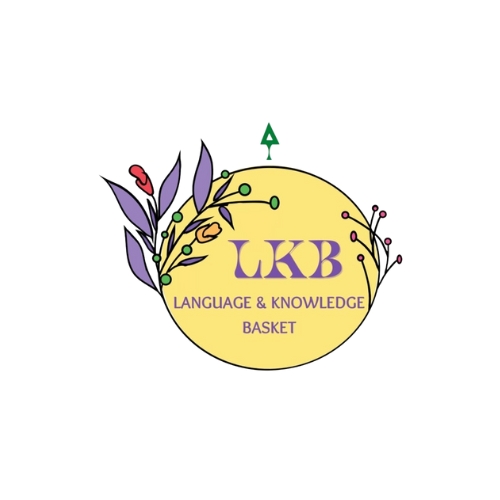Our Courses
Explore the young mind’s boundless opportunities and endless potential
Online & Offline Tuitions

Offering tuitions, both online and offline, for students up to the 10th standard across all subjects worldwide provides essential academic support and personalised learning experiences. These tuitions supplement classroom learning by providing additional explanations, practice, and guidance tailored to individual student needs. Online tuitions offer flexibility and accessibility, allowing students to learn from the comfort of their homes and access resources from anywhere in the world. They also enable interactive and collaborative learning experiences through virtual classrooms and multimedia resources. On the other hand, offline tuitions provide face-to-face interaction and personalised attention, fostering strong teacher-student relationships and a supportive learning environment. Both online and offline tuitions play a crucial role in helping students excel academically, build confidence, and achieve their learning goals across diverse subjects and academic standards.
Abacus

The abacus holds immense importance in children’s education, serving as a foundational tool for developing mathematical skills. Through hands-on manipulation of the beads, children not only learn basic arithmetic operations but also develop critical thinking, concentration, and problem-solving abilities. Its tactile and visual nature appeals to different learning styles, making it accessible and engaging for all children. Moreover, mastering the abacus instills confidence in young learners, laying a solid groundwork for future mathematical concepts and academic success. In an age where digital devices dominate, the abacus offers a valuable alternative that fosters a deeper understanding of numbers and promotes mental calculation skills. Its enduring relevance in children’s education underscores its significance as a timeless and effective learning tool.
Vedic Maths

Vedic Maths, rooted in ancient Indian mathematical principles, offers a holistic approach to learning mathematics that is both innovative and effective for children. By incorporating mental calculation techniques derived from Vedic scriptures, Vedic Maths not only simplifies complex mathematical operations but also enhances mental agility and problem-solving skills in young learners. Through its emphasis on patterns, symmetry, and mental visualisation, Vedic Maths promotes a deeper understanding of mathematical concepts while stimulating creativity and critical thinking. Its application-oriented approach encourages children to explore alternative methods of problem-solving, fostering a sense of confidence and independence in their mathematical abilities. In today’s fast-paced world, where computational proficiency is essential, Vedic Maths provides a valuable foundation for children to excel academically and succeed in various real-world scenarios.
Memory Development

Memory development is a fundamental aspect of children’s education, laying the groundwork for effective learning and academic success. Through targeted memory enhancement techniques and exercises, children can improve their ability to retain and recall information, facilitating better performance in academics and beyond. Memory development activities stimulate neural connections in the brain, strengthening cognitive functions such as attention, concentration, and information processing. These exercises often involve mnemonic devices, visualization techniques, and repetition to reinforce memory retention. By incorporating memory development practices into their daily routines, children can enhance their learning capacity, boost confidence, and develop essential skills for lifelong learning and problem-solving. In today’s fast-paced educational environment, cultivating strong memory skills is crucial for navigating complex academic challenges and achieving academic excellence.
Hindi & Tamil

Learning Hindi and Tamil not only offers children a rich cultural and linguistic experience but also provides practical skills and opportunities for personal growth. Mastery of these languages grants access to a vast array of literature, poetry, and folklore, deepening understanding of diverse cultures and traditions. Proficiency in Hindi and Tamil facilitates communication with millions of speakers worldwide, fostering multicultural understanding and collaboration. Furthermore, children trained for Hindi Prachar Sabha exams gain valuable academic credentials and cultural appreciation. Through language learning, children develop empathy, cultural awareness, and cognitive abilities such as problem-solving and critical thinking. Overall, mastering Hindi and Tamil nurtures holistic development, equipping children with essential skills for success in an increasingly globalised world.
Phonics

Phonics education is an essential component of children’s literacy development, providing the foundational skills needed for proficient reading and writing. By teaching the relationship between sounds and letters, phonics instruction empowers children to decode words independently, enhancing their reading fluency and comprehension. Through systematic phonics instruction, children learn to recognize and manipulate the sounds of language, paving the way for effective spelling and vocabulary acquisition. Phonics-based approaches also promote phonemic awareness, phonological processing, and language development, laying a solid groundwork for future academic success. Moreover, phonics education fosters a love for reading and empowers children to become confident and lifelong learners. In today’s literacy-focused educational landscape, phonics instruction remains a cornerstone of early literacy education, providing children with essential skills and strategies to navigate the complexities of written language.
Handwriting

Handwriting instruction plays a crucial role in children’s academic development, offering more than just a means of communication. It serves as a foundational skill that enhances fine motor skills, hand-eye coordination, and cognitive development. Through systematic handwriting practice, children learn proper letter formation, spacing, and alignment, laying the groundwork for legible and fluent writing. Handwriting also contributes to language development, as it reinforces letter-sound relationships and strengthens memory retention. Moreover, handwriting fosters creativity and self-expression, allowing children to convey their thoughts and ideas effectively on paper. In today’s digital age, handwriting remains a valuable skill, promoting cognitive engagement and critical thinking. By mastering handwriting, children not only improve their academic performance but also cultivate a sense of pride and confidence in their abilities to communicate effectively through written expression.
Early Infant Learning

Early infant learning is a critical stage in a child’s development, laying the foundation for lifelong learning and growth. During this period, infants begin to explore and interact with their environment, absorbing information through sensory experiences and social interactions. Through responsive caregiving and stimulating activities, infants develop essential cognitive, social, and emotional skills that form the basis of their future learning. Early infant learning experiences, such as bonding with caregivers, exploring objects, and engaging in simple games, support brain development and promote healthy attachment relationships. Additionally, exposure to language, music, and sensory stimulation during this stage fosters early language acquisition and sensory-motor coordination. Investing in early infant learning sets the stage for future academic success and overall well-being, emphasising the importance of providing nurturing environments and supportive relationships during these formative years.
Interpersonal Skills

Developing interpersonal skills is essential for children’s social and emotional development, empowering them to navigate relationships and communicate effectively with others. Through interactive activities and role-playing scenarios, children learn important skills such as active listening, empathy, and conflict resolution. These skills enable them to build meaningful connections, collaborate with peers, and work effectively in group settings. Additionally, interpersonal skill development fosters self-confidence and self-awareness, helping children understand their own emotions and perspectives while respecting those of others. By cultivating strong interpersonal skills, children develop the foundation for healthy relationships, effective communication, and successful interactions both in academic and personal contexts.
Bhagavad Gita

Studying the Bhagavad Gita can offer children timeless wisdom on ethics, duty, and the pursuit of a meaningful life. It teaches the importance of doing what is right, not just what is easy, and encourages self-reflection and personal growth. The Gita’s dialogue between Krishna and Arjuna delves into concepts of courage, selflessness, and the nature of the self, providing a profound way for kids to understand moral values and the complexities of life decisions by surrendering to the lord.
Srimad Bhagavatam Stories

Bhagavatam offers rich narratives full of divine interventions, and moral lessons. They present a unique blend of philosophy, and devotion, inviting children to explore themes of love, devotion, and the interplay of the divine and the mundane. Engaging with these stories can spark imagination, impart cultural and spiritual values, and inspire a sense of wonder and curiosity about the universe and one’s place and purpose within it.
Ramayana

Learning the Ramayana offers kids valuable life lessons on duty, righteousness, and devotion. It introduces them to cultural heritage, encourages moral values and our history. Understanding characters and their decisions can foster wisdom. It’s a way to connect with historical narratives and traditions, enriching their knowledge base and cultural appreciation.
